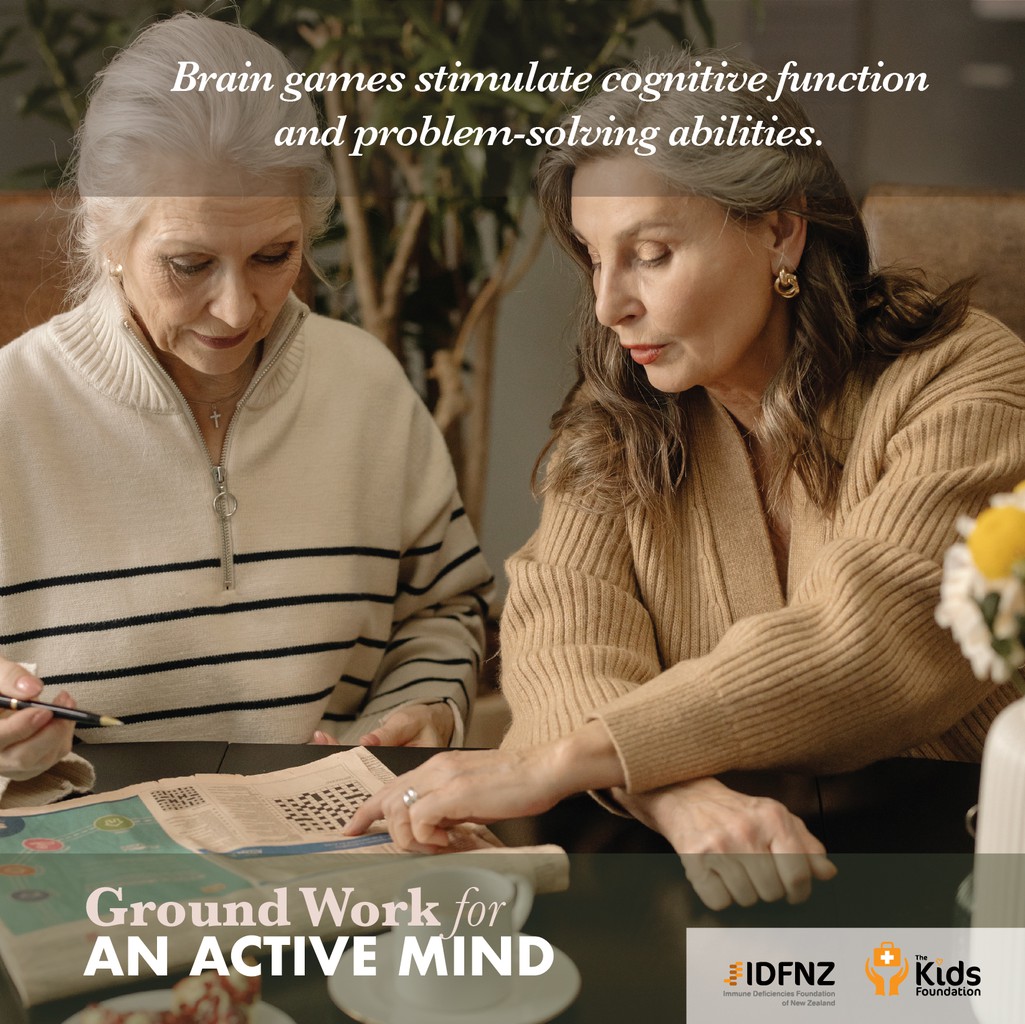Ground Work for An Active Mind pt.2
Wed Dec. 20th 2023

A sharp mind is a valuable asset. Having the ability to think clearly, solve problems, and adapt to all that life throws at you plays a pivotal role in our overall well-being. When your child is unwell or hospitalized for any amount of time, it can be an emotionally challenging and draining experience. Your primary focus is on their well-being, and understandably, your mental and emotional resources are often directed toward their care and recovery. However, it is equally important to take care of yourself. One part of this is by staying mentally active. While genetics and lifestyle choices play a significant role in maintaining mental sharpness, there are several strategies and activities you can incorporate into your life to keep your mind active and engaged.
There are many practical ways that you can foster mental agility and sharpness, and not all will suit your situation. There is also no requirement to take on all these strategies at once! Read through the following ideas and see if any spark an interest, or if you think they could fit into your lifestyle as it currently stands.
Reading: Reading is an excellent way to stay mentally active. Whether you prefer fiction, non-fiction, or magazines, reading exposes your mind to new ideas, vocabulary, and perspectives. Read widely; books, articles, online newspapers, and e-books can be your best companions when you’re alone in a hospital, or facing long wait times at a clinic. Choose literature that interests you, whether it's fiction, self-help, or educational content, over time, you may find your interests change as well. Reading is one way you can escape into a different world, while at the same time stimulating your mind.
Learning: This is closely linked to reading, but can also include acquiring a new skill or hobby. Lifelong learning is one of the most effective ways to keep your mind sharp. Take up a new language, hobby, or skill that challenges your brain and expands your horizons. Online courses and tutorials make it easier than ever. Is there something you’ve always wanted to know how to do, or something that would be really useful not only to your own family but to others? The process of learning keeps your mind engaged and your self-esteem boosted. If you’re in and out of the hospital a lot, you could learn how to say ‘hello’ in a few different languages, when you strike up conversations with medical staff and other parents.
Puzzles and Brain Games: Crossword puzzles, Sudoku, jigsaw puzzles, and brain training apps are great for keeping your mind active. They can be done in short bursts and are not only fun but mentally enriching. Brain games stimulate cognitive function and problem-solving abilities. They are widely available as apps on mobile phones, or if you prefer a pen on paper, there are plenty of puzzle books at $2 shops, bookstores, or supermarkets.
Journaling: Keeping a journal can be therapeutic. It allows you to express your feelings and thoughts while keeping a record of your life and your child's progress. Journaling can help you track your emotional journey and to maintain perspective. You can also use a journal to set goals. Establishing and pursuing clear goals gives your mind a purpose. Working towards something you're passionate about keeps your mind focused and sharp, and gives an enormous sense of satisfaction when you achieve these goals, and look back on how far you’ve come.
Meditation and Mindfulness: Meditation and mindfulness practices help reduce stress and improve focus and attention. It may be completely new to you, or you may have been using meditation for years - regular meditation can contribute to a calmer and more agile mind. Mindfulness practices can help you manage stress and anxiety. Apps and guided sessions are readily available to guide you through these techniques.
Stay Social: Engaging in meaningful conversations with others about various topics can stimulate your intellect and challenge your perspective. It may not come naturally, but we need to talk to others, whether they’re lifelong friends or a stranger across the room. Connecting with people, sharing experiences, and providing support to one another is mentally stimulating and emotionally comforting. Striking up a conversation is a great way to gain other’s perspectives, and find common ground that is invaluable when going through difficult circumstances.
Creative Arts: Try your hand at some creative activities like drawing, painting, or listening to music.
Music and Art is mentally stimulating and is shown to enhance your memory, reduce stress, and improve your overall cognition. Certain songs and melodies may also help you retrieve memories you may have long forgotten. Creativity is a way to express your emotions and channel your energy into something positive. Painting, drawing, sketching, and writing, all of these encourage an active mind and innovation. Creative activities engage different parts of your brain and can improve your problem-solving skills. You may even find that while listening to music or sketching in a notebook a great idea or a solution to a problem springs to mind!
